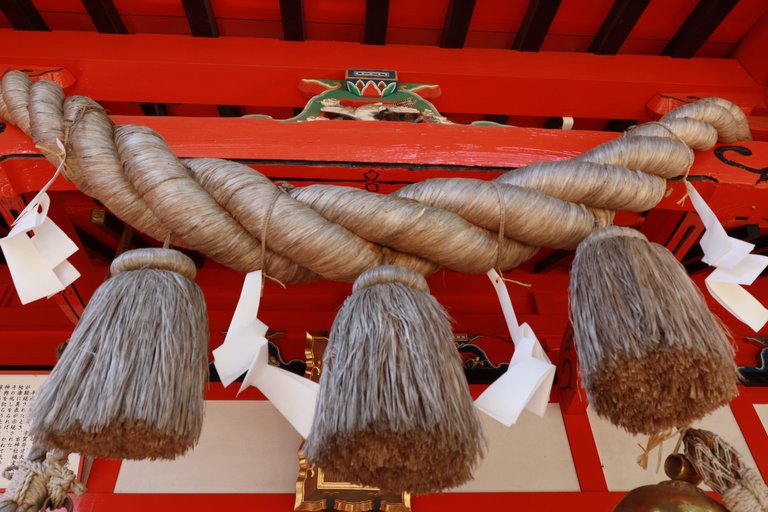
Imagine living a few kilometers from a wonderful Shrine for years and not even realizing it? Well that is the case with the Kanmuriinari Shrine and that is the case when your job takes up so much of your time. Today I was off work in the morning and decided to see if there were any places of interest around and I found this gem.
The interesting thing about this Shrine is that it has different Gods in each structure so one can pray for various reasons. A God and a shrine for good fortune, academics, health, luck, battles, pets, couples, families and profit. Being one to indulge in culture, I prayed at a few of the mini shrines. In this post we shall dive into the religious, the mythical and architectural features of the Kanmuriinari Shrine.
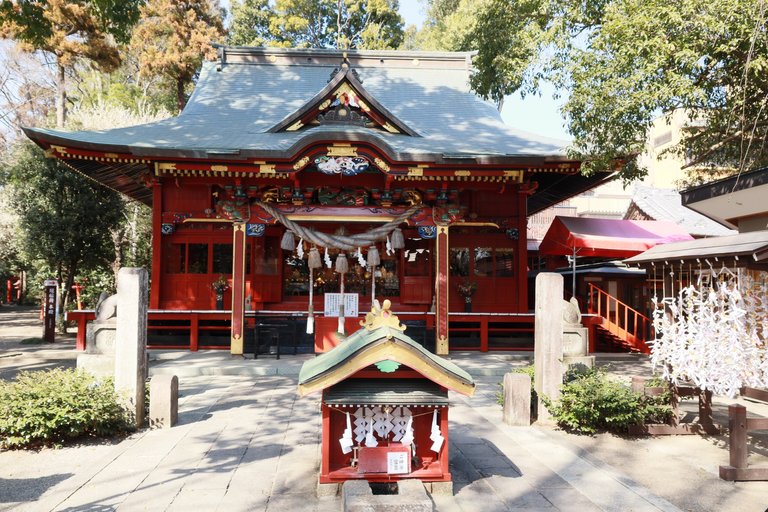
Above is the main structure and the largest. The artistic details are the main points of interest to me. Like these two Komainu ( lion dogs) carvings. The thing is once you have seen a few temples, it’s as if you have seen them all unless you really look deeper into the art.
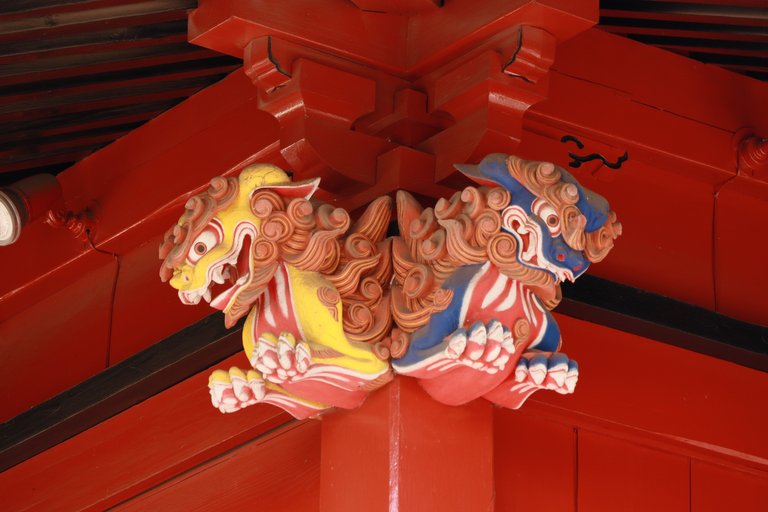
Now, many may be wondering, why are all Japanese shrines red? Well, it is to ward off bad luck and evil spirits. The same goes for the Komainu ( Lion Dogs). Dragons seems to be a major theme on this shrine as well.The green dragon appears to be the inner center piece while the white dragon is the outer center piece above it.
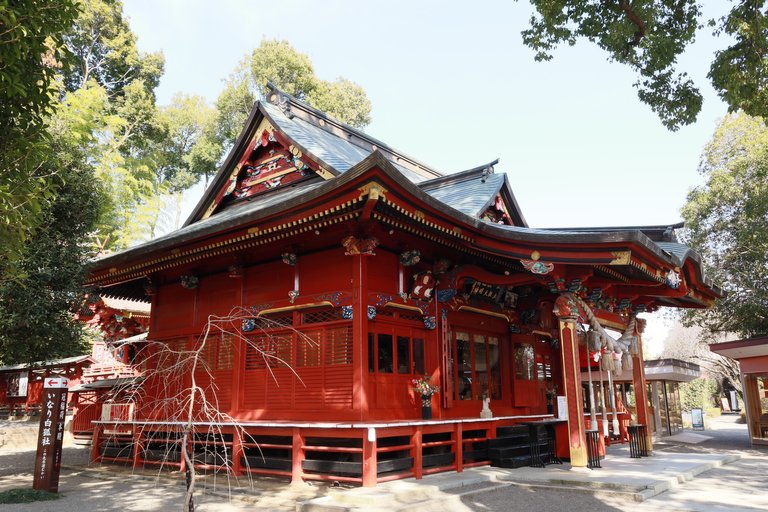
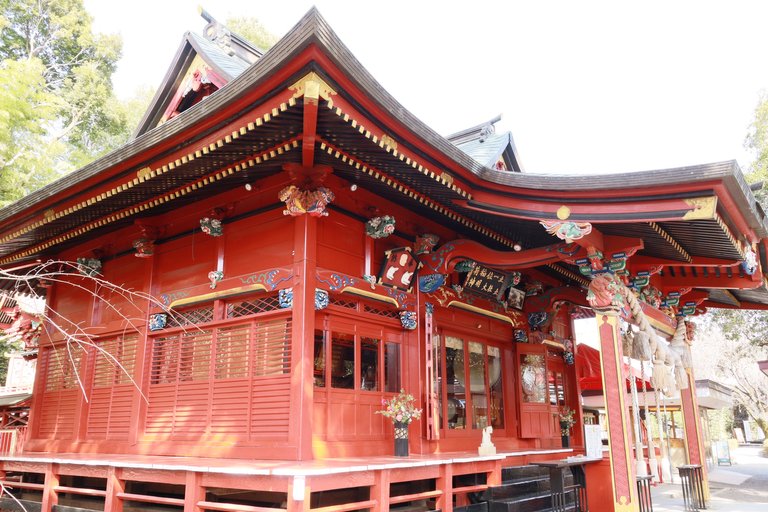
Dragon Mythology in Japan
Dragons have an interesting mythology in Japan and are slightly different from the dragons in Indian and Chinese culture. Chinese Dragons have 4 claws and in Japan 3 and in both cultures symbolize luck, strength and wisdom. In India, it is seen more as a demon, the bringer of drought, evil and chaos. In Japan, the Dragon is a sea/river creature with scales that is said to shape-shift into human form. It is said that a female dragon shape-shifted into a human and married a hunter, they then had 4 sons and one of them became the first emperor of Japan. Talk about royal blood.
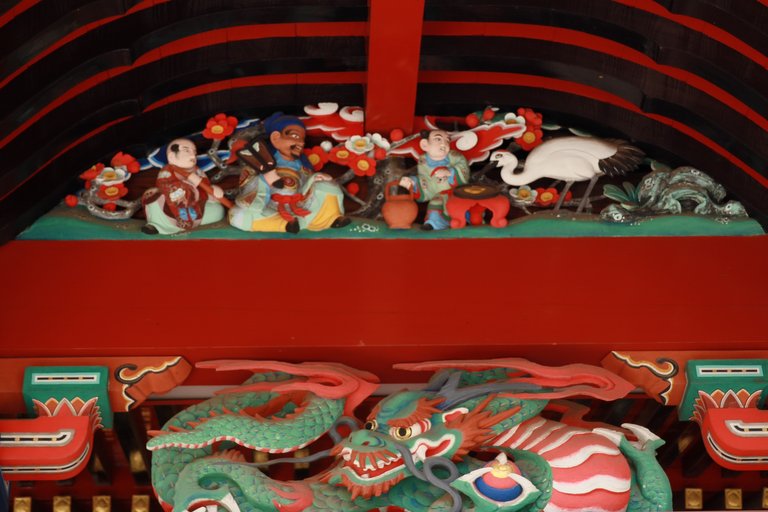
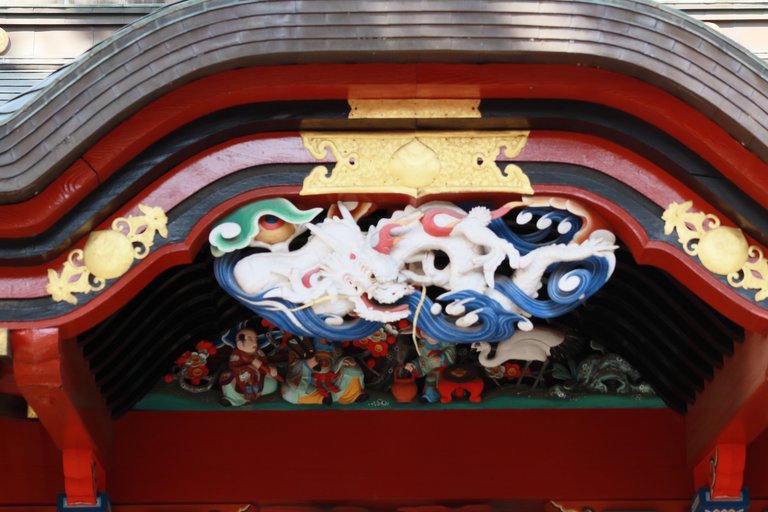
Shimenawa , The Sacred Rope
The ropes along the shrine entrance are called the Shinemawa. It it used to signify sanctity and purity. It is usually made from hemp but these days, from rice wheat straws. A feature on the Shimenawa are the hanging zigzag papers called shide which are made from washi. It is usually part of new years decoration.
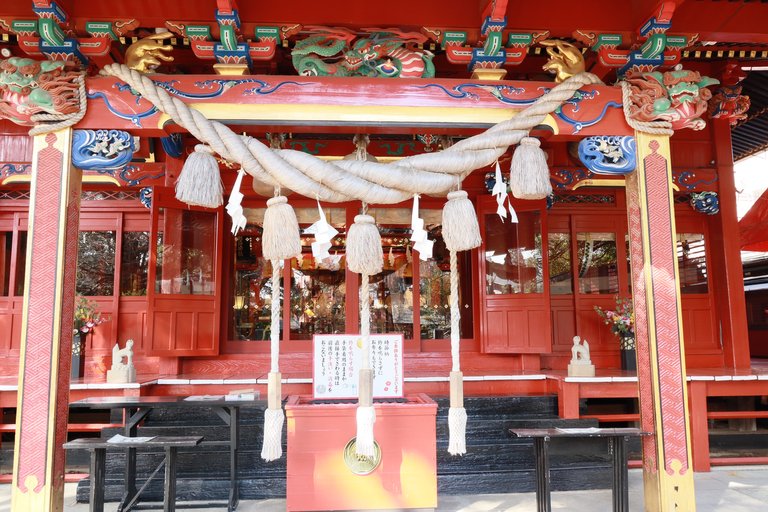

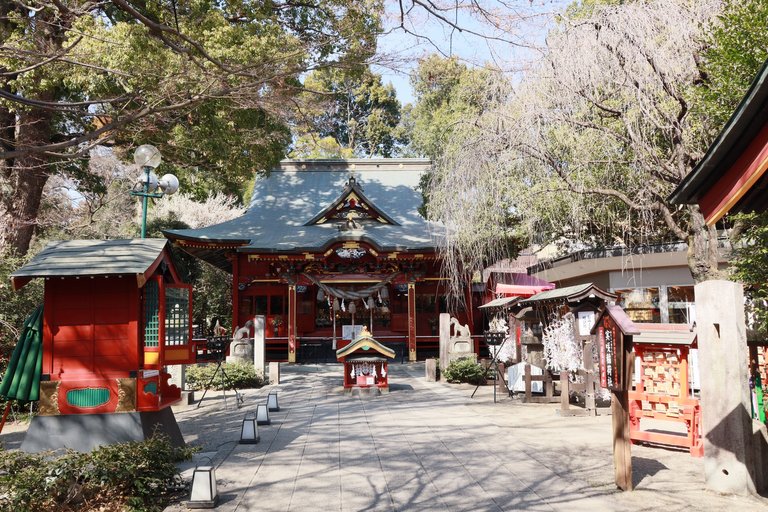
The White Fox
The White fox in Japan is said to be a God, in its Inari form (like the one seen in the picture below at the Shrine), it signifies good harvest, smart business sense, fertility, prosperity, tea, sake and money in a balanced and compartmentalized manner.
At this shrine, there was an interesting ritual pertaining to mini fox figurines. Individuals, after placing the white for figures in their homes for one year, then com to the shrine and place it on a long shelf of other fox figures for prosperity.
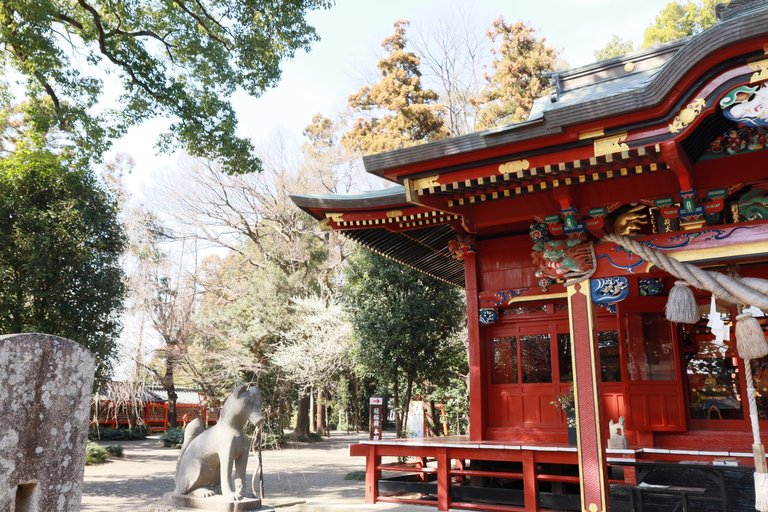
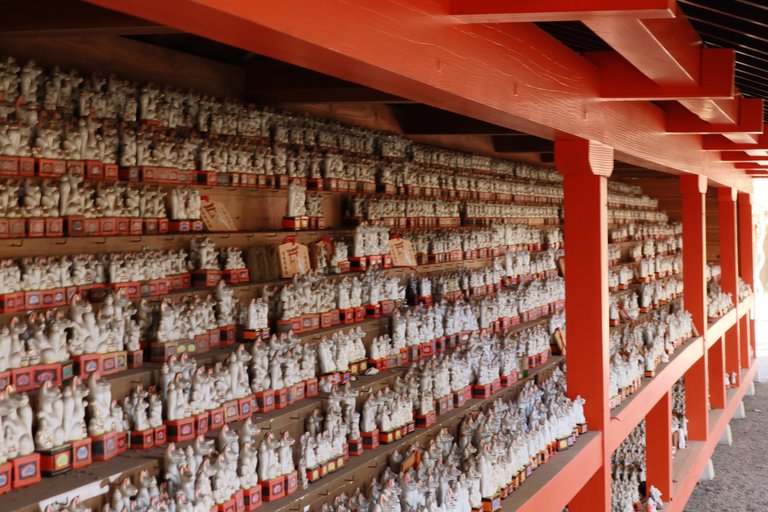
In a part II, we shall look at the next major shrine on these grounds and some of the unique carvings on it. Thank you for reading and I have purposely made this post shorter than usual to respect your time as well as mine.
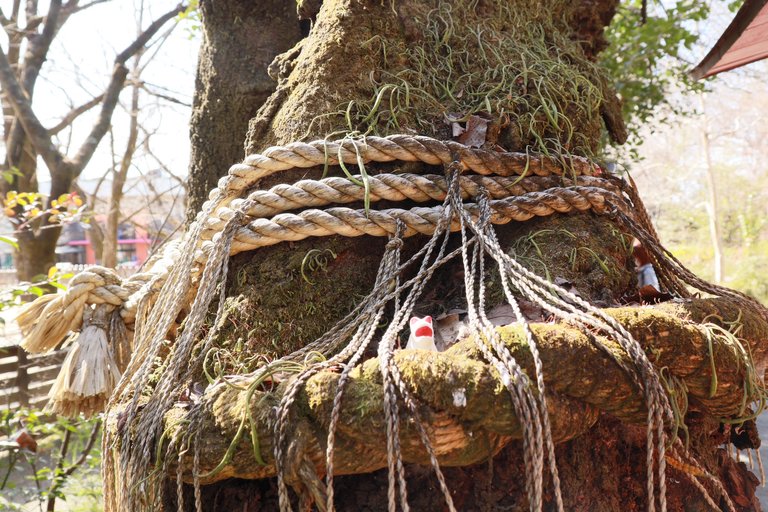
Congratulations @dmilliz! We're delighted to specially curate your awesome publication and award it RUNNER-UP in Architecture Brew #59. More power!
Thank you for subscribing to Architecture+Design, an OCD incubated community on the Hive blockchain.
Thanks always for the support! Gonna take a look at those winners.
With utmost pleasure @dmilliz. Thank you as well for your amazing contributions and incredible support! 😀
superb post. I think the only thing that would drag me away from our new life on the water here would be the opportunity to spend an extended amount of time back in Japan. The place had an impact on me for real
Japan really is an impactful place. There is a lot to grumble about but so much to be amazed about too yeah. The good thing is, when you do come by, you already know your way around. I think Okinawa would be a good long term spot for you and @millycf1976.
So far Tokyo, Osaka and Kyoto we all amazing yet all so amazingly different. I’d be happy with anywhere there. You never knkw an opportunity may present itself at some point
I see, that is how most Japanese shrines are painted in red, to ward off evil spirits.
There are a few white ones but I guess those are so sacred they don't even fear evil 😆
You're welcome (^_^)
Beautiful structure and desing, i like very much
It's pretty neat. I shush I was able to go inside but only the munks.
The rewards earned on this comment will go directly to the person sharing the post on Twitter as long as they are registered with @poshtoken. Sign up at https://hiveposh.com.
Thanks for commenting. It is a beauty. Wait till you see the carvings in part II.